In The Blink of an Eye
About two years ago I became interested in filming things using a high speed camera. This type of a video camera takes video at very high frame rates, 300 fps and above. At about that same time Casio introduced a consumer level camera the EX-F1 that had the capabilities of taking high speed video at 300, 600 and 1200 fps! In addition to that, it can take full 6MP frames at 60 fps with a unique buffer system that captures the first 0.5 seconds before the shutter is tripped and the 0.5 seconds after the shutter is tripped allowing the decisive moment to be captured, almost guaranteed. I made many short experimental videos using that camera of things to fast for our eyes to normally see. And while it was interesting I became preoccupied by other things and set that work aside.
In the last few months the interest has had a resurgence. I saw a short video segment of a Discovery Channel show titled Time Warp where they filmed water drops falling into a shallow pool of water. It was incredibly fascinating and piqued my interest to go back and do more high speed photography. I also have been very fascinated with the nature of water for several years and so the two desires met and I embarked on trying to photograph water drops in the midst of the interaction between the water drop and water pool. I tried many different techniques using natural light but none were successful, forcing me to succumb to using strobe lighting in the studio.
Now I have nothing against using strobes, so don’t get me wrong. Studio work is fun, but its studio work. The added variable of changing light is gone and so is the magic, for the most part, when some great light appears illuminating the subject for that brief few moments and forcing you to work fast to capture it. Those moments bring a great sense of satisfaction. Unlike that, studio work is more predictable and once the test photos are done and the lighting is set, its just shutter work from there on out, well almost.
Enter in a new variable – time, or should I say timing. Trying to capture a water drop in the midst of its interaction with a pool of water is to say the least an activity that requires great patience and perseverance. Once I managed to set up a working light arrangement, I spend the better part of a day watching water drops fall over and over and over and over, tripping the shutter again and again and again. One image after another comes up missed and I would delete and delete and delete…oh wait that one is good. In my most recent attempt I made over 500 exposures and only 20 frames captured some form of interesting interaction.
The most interesting by far is when one drop of water is rebounding as a jet or totem and a second drop collides with it. In 500 frames I only managed to capture 4 frames with a collision. The drip rate of the water has to be timed perfectly and only two drops can be allowed to fall otherwise the water surface become much to turbulent and chaotic. Its definitely a challenge and one that I will keep tackling until I get something spectacular. The quest goes on.
This crop of images was just the first round and I plan on making many more. I am not sure what I will do with these, or if people like this kind of stuff, but it is most certainly fascinating and something that I can do almost any time I have nothing else to do, day or night, sunny or rainy. I am still interested in making these photos using only natural light so if any of you have any ideas on how I might be able to do that, I would love to hear them. In the mean time enjoy these and I will keep you posted.
Peace.
 Loading Image...
Loading Image...
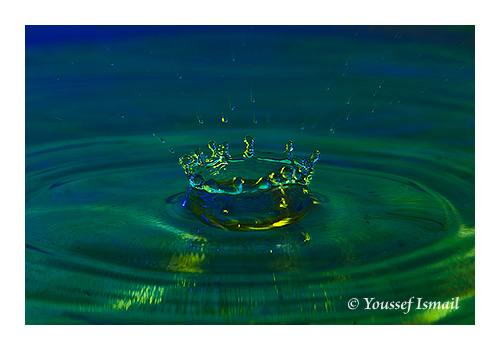
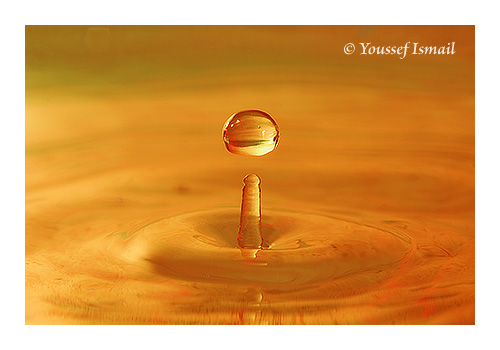
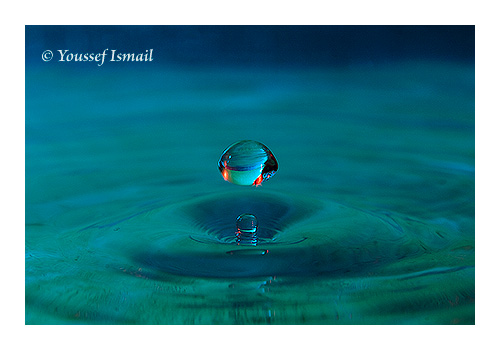
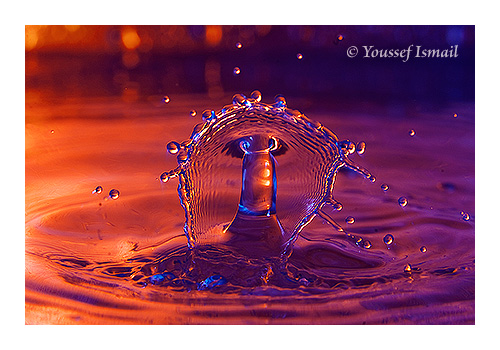
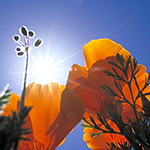





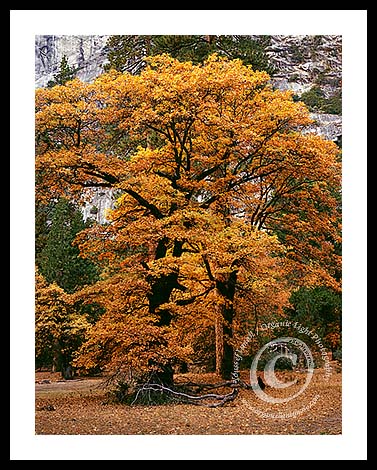
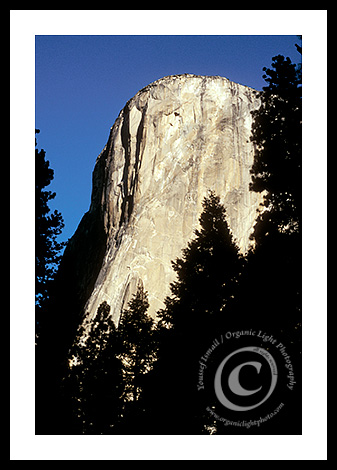
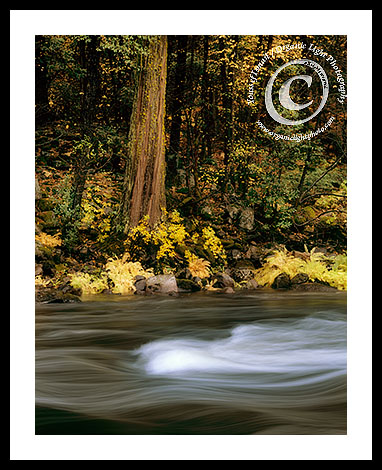
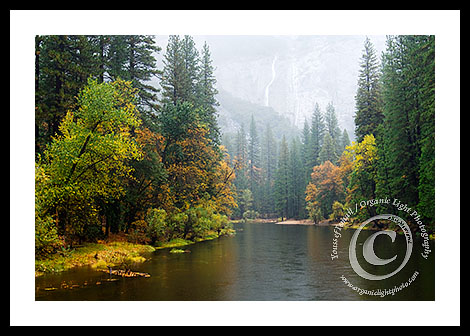
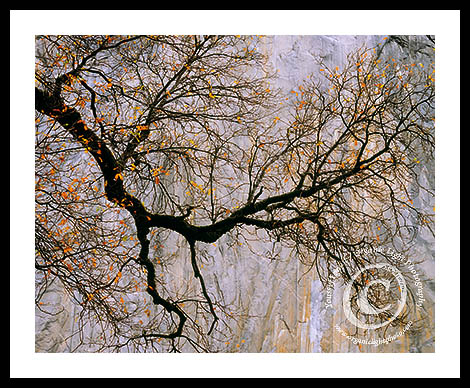
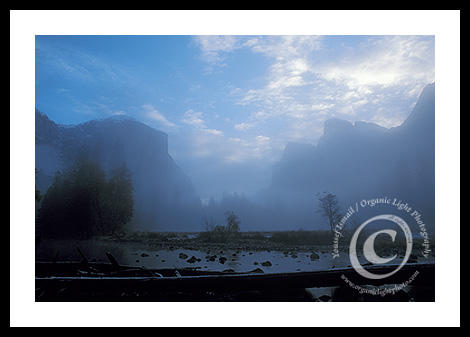
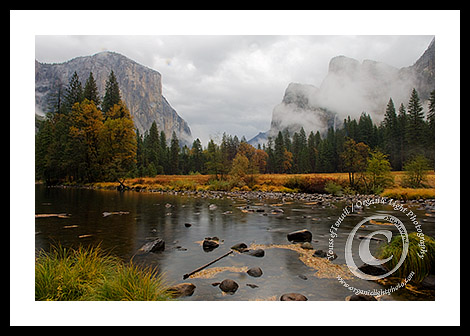
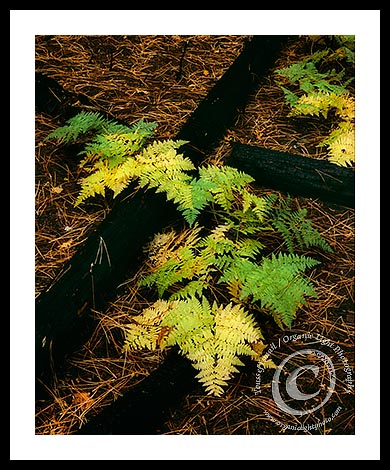
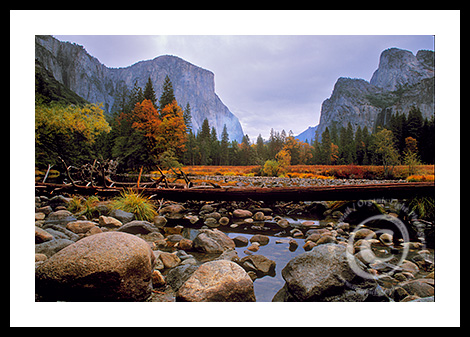
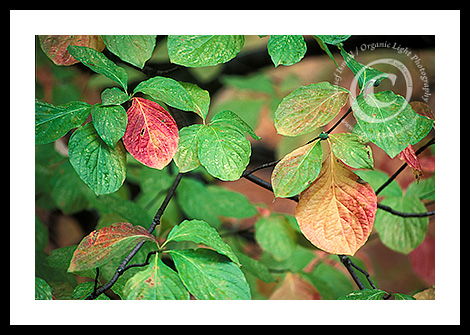
Tim Gray on 22 Jul 2011 at 10:26 pm #
Wonderful Post, Youssef!
A cousin of mine was a student of the late Harold Edgerton at MIT. A long time ago, I went to visit my cousin who was doing Post-Doc work there by that time. He took me in to meet Prof Edgerton, who showed me around his lab! Talk about “Geek Disneyland” !!! Cables, curtains, as well as strobe lights and high-brightness lamps all over the place.
He showed me some photos of his high-speed photographs.
What a memory….
What lens did you use? You have tremendous depth of focus, and sharp clarity…
Youssef Ismail on 22 Jul 2011 at 10:43 pm #
Thanks Tim. I used my trusty 80-200mm f/4 Nikon with a +2 diopter lens to help me focus close. For most of the photos I was st at f16. Those Edgerton photos must have been really neat to see in person.
Mustafa Davis on 23 Jul 2011 at 3:06 pm #
Beautifully creative. God bless.